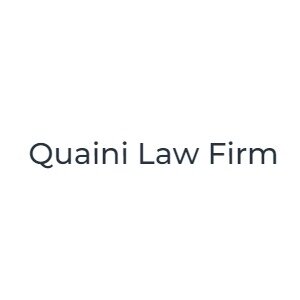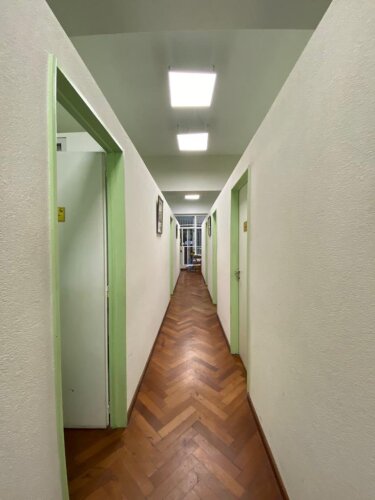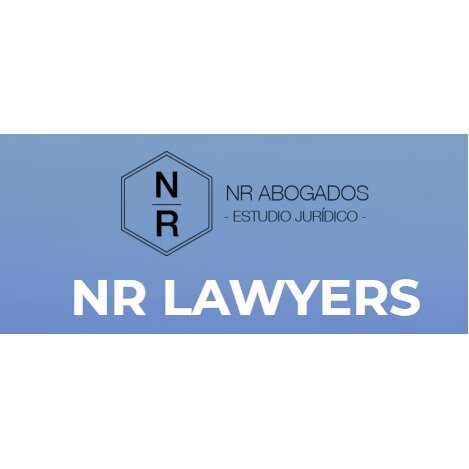Best Inheritance Law Lawyers in Buenos Aires
Share your needs with us, get contacted by law firms.
Free. Takes 2 min.
List of the best lawyers in Buenos Aires, Argentina
1. About Inheritance Law in Buenos Aires, Argentina
Inheritance law in Argentina is governed primarily by the national Civil and Commercial Code, known as the Código Civil y Comercial de la Nación (CCyC). In Buenos Aires, the CCyC provides the framework for wills, estates, heirs, and legitimate shares. Local courts apply these rules in civil and commercial proceedings, including probate and disputes over the distribution of assets.
The process typically distinguishes between testate succession (with a will) and intestate succession (without a will). In both paths, a person’s assets, debts, and heirs are identified, inventories prepared, and a formal partition or division agreed or ordered by a court. Familiar concepts in this jurisdiction include legitimate heirs, the forced share (legítima), and potential reservations or improvements that may affect distribution.
For residents of Buenos Aires, understanding whether you are dealing with a will, an intestate estate, or a blended family situation matters greatly for choosing the right procedural route. A qualified abogado (lawyer) or procurador (court representative) can help navigate the court filings, inventories, and partitions that are common in Buenos Aires civil proceedings.
Key takeaway: Inheritance matters in Buenos Aires combine national civil law with local court procedures. The goal is to identify heirs, validate the will if present, settle debts, and achieve a fair partition of assets in line with the law.
"El Código Civil y Comercial de la Nación regula la sucesión, la legítima y la aceptación o repudiación de herencias."
Source: infoleg.gob.ar - Código Civil y Comercial de la Nación
2. Why You May Need a Lawyer
These are concrete, real-world scenarios where you would benefit from legal counsel in Buenos Aires. Each example reflects common situations facing families in the city and province.
- You suspect a will is invalid or contested. A spouse or child challenges a testament that disinherits them or narrows their legitimate share. A lawyer can review the execution formalities, validity, and potential remedies in court.
- Property is located in multiple jurisdictions. Real estate in Capital Federal and a farm in the Buenos Aires Province requires coordinated inventories, valuations, and filings in different courts. An attorney coordinates the process to avoid delays in transfer of titles.
- There are minor heirs or dependents involved. If minors share in the estate, a guardian or fiduciary must be appointed and the court must approve a plan for their portion, which requires careful legal oversight.
- Debts exceed assets or there are complex liabilities. Estates with mortgages, loans, or tax obligations require professional analysis to determine what the heirs inherit and what must be paid from the estate.
- International or foreign elements appear. When a will or the deceased's assets involve foreign jurisdictions or non-residents, cross-border rules and residency issues arise that a local abogado can address more efficiently.
- Tax or stamp duty considerations emerge. Transfers may trigger provincial or municipal taxes and document taxes, which require precise filings and timing to minimize costs and penalties.
3. Local Laws Overview
Two to three core reference points help frame inheritance matters in Buenos Aires. They illustrate how national civil law interacts with local tax and procedural rules.
The first and primary reference is the national CCyC, which sets the rules for wills, succession, legacies, and the definition of heirs. The second and third references relate to taxes and documentary duties that affect inheritance transfers in Buenos Aires.
"El Código Civil y Comercial de la Nación regula la sucesión, la legítima y la aceptación o repudiación de herencias."
Source: infoleg.gob.ar
"La transmisión de bienes por causa de fallecimiento puede generar obligaciones fiscales como impuestos provinciales y derechos de sellos."
Source: AFIP - afip.gob.ar
Código Civil y Comercial de la Nación (CCyC)
The CCyC governs the fundamental rules of succession in Argentina, including how legitimate shares are determined, how a will is admitted, and how a decedent’s estate is administered. It outlines who can be an heir, how debts are paid, and how assets are partitioned among heirs. This is the central framework used in Buenos Aires for both intestate and testate proceedings.
Recent context: The CCyC has been in effect for several years and remains the baseline for inheritance matters. Legal updates and provincial court practice continue to adapt to this framework. See official legislative texts for the precise provisions that apply to your case.
Impuesto a las Transmisiones Gratuitas de Bienes (ITGB)
In Argentina, gratuitous transfers of property upon death can trigger taxes in some jurisdictions. The ITGB is administered in practice through provincial or municipal authorities, with guidance from federal authorities on cross-jurisdictional issues. In Buenos Aires, heirs and executors should confirm whether ITGB applies to the estate and how the tax is calculated and reported.
An inheritance professional can determine whether ITGB or similar taxes affect your case and help plan the timing of transfers to minimize tax exposure.
Impuesto de Sellos y Documentos Relacionados
Stamp tax on documents and deeds related to succession matters is a consideration in Buenos Aires. The tax can apply to wills, partition agreements, and transfer deeds. Compliance with stamping requirements is essential to avoid penalties and ensure the validity of instruments recording the estate's disposition.
Consultation with a local abogado helps ensure all relevant documents are properly stamped and filed with the appropriate authorities in a timely manner.
4. Frequently Asked Questions
What is the difference between a will and an intestate succession?
A will is a legal instrument outlining how assets should be distributed after death. Intestate succession occurs when there is no valid will. In both paths, the court identifies heirs and oversees the distribution of assets in accordance with the CCyC and local rules.
How do I start a succession process in Buenos Aires?
Begin by gathering vital records such as the death certificate, will (if any), asset list, and debts. File a petition with the civil court in the jurisdiction where the deceased resided, and engage a local abogado to guide you through inventories and partitions.
When must I hire a lawyer for inheritance matters?
While some steps may be completed informally, complex estates, disputes among heirs, or real estate transfers typically require a lawyer. An abogado can draft petitions, review wills, and represent you in court filings and negotiations.
Where do I file the probate or succession documents in Buenos Aires?
In Buenos Aires, probate matters are filed in the civil and commercial courts of the jurisdiction where the deceased resided. A local abogado can determine the exact court and coordinate filings with the court clerk and prosecutors as needed.
Why might a notarized will be challenged in court?
Challenges often involve formal execution, the testator's capacity, undue influence, or improper revocation. A lawyer can review execution formalities and help present evidence to support or contest the will.
What documents should I prepare for a succession filing?
Expect to gather death certificates, birth certificates of heirs, marriage certificates, the will (if present), property titles, mortgage statements, tax documents, and a list of creditors. A lawyer will provide a precise checklist for your case.
How long does a typical succession take in Buenos Aires?
Prolonged cases with unfamiliar assets, taxes, or disputes may last 6-12 months or longer. Simple estates without heavy disputes can resolve in 3-6 months, depending on court backlogs and cooperation among heirs.
Do I need to be a resident of Buenos Aires to inherit there?
Residency affects where you file, but inheritance rights can extend to non-residents depending on the decedent's domicile, assets, and will provisions. An abogado can determine the correct forum and applicable law for your situation.
Can a family member act as executor without legal counsel?
A family member can act as executor in some cases, but complex administrations benefit from legal oversight. A lawyer ensures compliance with deadlines, tax filings, and court orders.
Should I consider mediation for inheritance disputes in Buenos Aires?
Mediation can resolve disputes more quickly and with less cost than full litigation. A lawyer can help you pursue mediation and draft settlement terms suitable for court approval if needed.
Do I need to pay for a consultation with an inheritance lawyer?
Many Buenos Aires lawyers offer initial consultations, sometimes free or for a modest fee. Prepare a brief summary of your case and your goals to maximize the value of the session.
5. Additional Resources
These official resources help you understand the legal framework and procedural steps for inheritance matters in Buenos Aires.
- infoleg.gob.ar - Official portal for Argentine laws and regulations including the Código Civil y Comercial de la Nación; use it to review the exact text of inheritance provisions. Visit infoleg
- afip.gob.ar - Federal tax authority providing guidance on taxes related to transfers of assets, including general information on fiscal obligations and compliance. Visit AFIP
- argentina.gob.ar/justicia - National portal for justice and civil procedure information; can help you locate court resources and official guidance on succession matters. Visit Justicia
6. Next Steps
- Identify your role and the assets involved. Create a list of heirs, spouses, and minors, and note all real property, bank accounts, and debts.
- Locate any will and, if found, arrange a copy from the notary or local registry. If no will exists, prepare to pursue intestate succession with your abogado.
- Consult 2-3 abogados especializados in inheritance law in Buenos Aires. Ask about experience with real estate, cross-border assets, and tax considerations.
- Prepare an initial budget and fee estimate. Clarify retainer terms, hourly rates, and potential costs for inventories, appraisals, and court filings.
- Choose a local abogado and sign a powers of attorney or engagement letter authorizing them to file documents and represent you in court as needed.
- Gather essential documents and schedule a consultation. Bring the decedent's death certificate, will (if any), asset lists, and related debts for review.
- Begin the probate or partition process in the appropriate civil court and work with your abogado to prepare inventories, valuations, and proposed partitions.
Lawzana helps you find the best lawyers and law firms in Buenos Aires through a curated and pre-screened list of qualified legal professionals. Our platform offers rankings and detailed profiles of attorneys and law firms, allowing you to compare based on practice areas, including Inheritance Law, experience, and client feedback.
Each profile includes a description of the firm's areas of practice, client reviews, team members and partners, year of establishment, spoken languages, office locations, contact information, social media presence, and any published articles or resources. Most firms on our platform speak English and are experienced in both local and international legal matters.
Get a quote from top-rated law firms in Buenos Aires, Argentina — quickly, securely, and without unnecessary hassle.
Disclaimer:
The information provided on this page is for general informational purposes only and does not constitute legal advice. While we strive to ensure the accuracy and relevance of the content, legal information may change over time, and interpretations of the law can vary. You should always consult with a qualified legal professional for advice specific to your situation.
We disclaim all liability for actions taken or not taken based on the content of this page. If you believe any information is incorrect or outdated, please contact us, and we will review and update it where appropriate.













